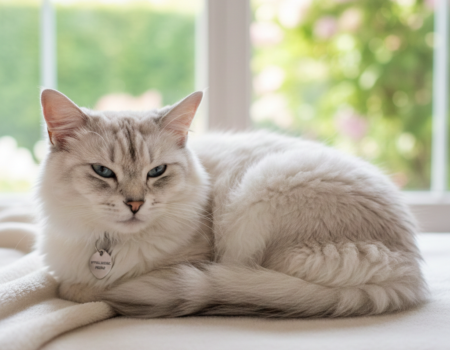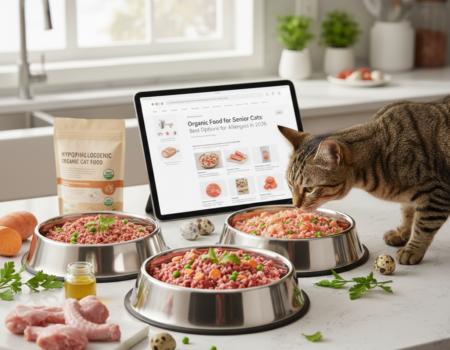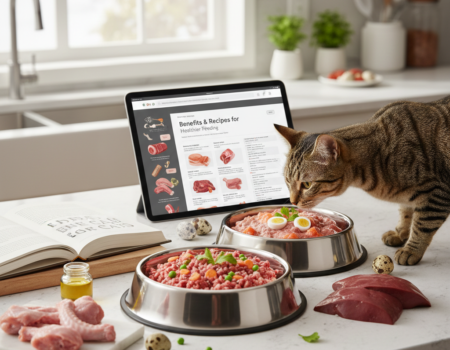Can Cats Drink Almond Milk? Safe or Not?
“Cats do not have a biological need for milk and can obtain all the necessary nutrients from a balanced diet.” – Jackson Galaxy
Cats and milk have been a classic duo for centuries, but the reality is that most cats are lactose intolerant and cannot properly digest lactose, the sugar found in milk. As a result, cat owners often seek alternatives to fulfill their feline’s craving for milk without causing discomfort or health issues. Almond milk, a popular lactose-free option for humans, sparks curiosity as to whether it is suitable for cats.
In this article, we will dive into the topic of cats and almond milk to determine if it’s safe or not. We will explore the nutritional aspects, potential risks, and alternative options that promote optimal health and well-being for our feline friends.
Key Takeaways:
- Cats are lactose intolerant and cannot properly digest lactose, the sugar found in milk.
- Almond milk lacks essential nutrients for cats, such as protein and fat.
- Regular consumption of almond milk can lead to digestive issues and contribute to obesity in cats.
- Instead of almond milk, it is best to provide cats with a meat-based diet and cat-friendly food options.
- Maintaining a healthy weight is crucial for cats to prevent obesity and related health issues.
Can Cats Have Almond Milk?
Feeding cats almond milk, even as an occasional treat, can lead to poor eating habits. Almond milk has a low protein and fat content, which are essential nutrients for cats. Additionally, store-bought almond milk can contain artificial ingredients and preservatives that are not suitable for a cat’s diet. Consuming too much almond milk can cause digestive issues and contribute to obesity in cats. Therefore, it is not recommended to give almond milk to cats.
Instead, it’s important to focus on providing cats with a nutritionally balanced diet that meets their specific needs. A meat-based diet is ideal for cats as they are obligate carnivores and require high levels of protein for optimal health and well-being.
“Feeding cats almond milk can lead to poor eating habits.”
If you are considering alternative milk options for your feline friend, it’s best to steer clear of almond milk and explore other cat-friendly alternatives. “Cats should avoid almond milk due to its low nutritional value.”
Below is a comparison of popular plant-based milk alternatives:
| Milk Alternative | Protein Content | Fat Content | Artificial Ingredients |
|---|---|---|---|
| Almond Milk | 1g per cup | 2.5g per cup | May contain artificial ingredients and preservatives |
| Coconut Milk | 0.5g per cup | 4.5g per cup | May contain artificial ingredients and preservatives |
| Soya Milk | 8g per cup | 4g per cup | May contain artificial ingredients and preservatives |
| Rice Milk | 1g per cup | 1g per cup | May contain artificial ingredients and preservatives |
“It is important to choose cat-friendly milk alternatives.
As evident from the table, plant-based milk alternatives like almond milk, coconut milk, soya milk, and rice milk may not provide the necessary nutrients for cats and can potentially contain unwanted additives.
It’s crucial to prioritize your cat’s health and well-being by providing them with a balanced, meat-based diet. There are plenty of cat-friendly food options to explore, such as meat, chicken, turkey, and fish, along with select vegetables and fruits. Consult with your veterinarian to create a suitable and nutritious meal plan that meets your cat’s specific dietary needs.
Almond Milk and Cat Nutrition
When it comes to cat nutrition, almond milk falls short. Cats require a diet that is high in protein, which almond milk does not provide. Feeding cats almond milk can lead to nutritional deficiencies and health issues.
Kittens and Almond Milk
Caring for kittens is a delicate task, as they have specific nutritional needs for proper growth and development. Almond milk is not suitable for kittens, as it does not meet their unique dietary requirements. Kittens should primarily consume their mother’s milk or a specially-formulated kitten milk replacer to ensure they receive the essential nutrients they need.
Almond Milk and Calories
When considering alternative milk options for cats, it is essential to understand the calorie content of the chosen milk. Almond milk, a popular choice among humans, can have a significant impact on a cat’s calorie intake.
One cup of almond milk contains approximately 30 to 60 calories, depending on the brand and additional ingredients. While this may seem relatively low, regular consumption of almond milk can contribute to weight gain in cats, especially those prone to obesity.
To maintain a healthy weight for your feline companion, it is crucial to monitor their calorie intake and provide them with a balanced diet that meets their specific nutritional needs without the added calories from almond milk.
Let’s take a closer look at the calorie content of almond milk compared to other cat-friendly milk options:
| Milk Option | Calories per Cup |
|---|---|
| Almond Milk | 30-60 |
| Coconut Milk | 45-70 |
| Soya Milk | 70-100 |
| Rice Milk | 90-120 |
As seen in the table, almond milk has a relatively low calorie content compared to other plant-based milk alternatives. However, it is important to note that all these milk options should be avoided due to their potential negative impact on a cat’s health and nutritional needs.
Instead, focus on providing your cat with a diet that consists of meat-based protein sources and cat-friendly food options.
Choosing Cat-Friendly Milk Options
While cats do not require milk as a part of their regular diet, there are cat-friendly milk options available that can be given as an occasional treat. These options are specifically formulated to cater to a cat’s nutritional needs.
- Kitten Milk Replacer: Designed for kittens, this milk replacer provides the necessary nutrients for their growth and development.
- Lactose-Free Cat Milk: This type of milk is specially formulated to be easily digestible by cats and can be a suitable treat on occasion.
It is important to remember that milk, even cat-friendly options, should only be given as an occasional treat and should not replace a balanced and nutritious diet suitable for a cat’s specific needs.
Other Plant-Based Milk Alternatives
While almond milk is not suitable for cats, it’s important to know that there are other plant-based milk alternatives that should also be avoided in their diet. Let’s take a closer look at some popular alternatives and understand why they are not recommended for cats:
Coconut Milk
Coconut milk, known for its creamy texture and rich flavor, may be a delicious choice for humans, but it can cause gastrointestinal problems in cats. Coconut milk contains high levels of saturated fats, which can be difficult for cats to digest. These fats can lead to digestive issues such as diarrhea and upset stomachs. Therefore, it’s best to keep coconut milk away from your feline friends.
Soya Milk
Soya milk, often used as a dairy-free alternative, is even more caloric than almond milk. It contains complex carbohydrates that cats cannot efficiently digest, potentially leading to gastrointestinal issues. The high caloric content can also contribute to obesity in cats, which can lead to various health problems. Therefore, it’s advisable to avoid giving soya milk to cats.
Rice Milk
Rice milk, made from milled rice and water, is another plant-based alternative that may not be suitable for cats. It is high in carbohydrates and lacks the necessary nutrients that cats require in their diet. While it may seem like a lighter option, it does not provide the essential proteins and fats that cats need to thrive. It’s best to opt for alternative food sources that better align with a cat’s nutritional needs.
To summarize, coconut milk, soya milk, and rice milk are not recommended for cats due to their potential to cause digestive problems, high calorie content, and lack of essential nutrients. It is important to choose cat-friendly food options that provide the necessary proteins and fats for their overall health and well-being.
What to Feed Cats Instead of Almond Milk
Instead of offering almond milk, it is important to promote a meat-based diet for cats. Cats are obligate carnivores and require a diet that is high in protein.
Here are some cat-friendly food options that can provide the necessary nutrients for your feline companion:
- Meat: Choose lean meats such as chicken, turkey, and prawns.
- Liver: Liver is a nutrient-rich organ meat that cats enjoy.
- Fish: Offer fish varieties like tuna, sardines, salmon, and mackerel, which are high in omega-3 fatty acids.
- Vegetables and fruits: Introduce small portions of cat-safe veggies like peas, carrots, cucumbers, broccoli, and spinach. Fruits like apples, pumpkins, and bananas can also provide additional fiber and nutrients.
- Limited lean deli meat: Ham, turkey, and chicken from the deli counter can be given in small quantities as occasional treats.
- Mushrooms, cat grass, catnip, and herbs: These can be provided to add variety and enrichment to your cat’s diet.
Remember, it’s essential to provide a diverse and nutritious diet for your cat to ensure their overall health and well-being. Consult with your veterinarian to determine the best feeding plan for your cat, taking into account any specific dietary needs or medical conditions.
The Risks of Giving Cats Milk
Despite the popular belief that cats love milk, most cats are lactose intolerant and cannot properly digest lactose, the sugar found in milk. When cats consume milk, it can lead to gastrointestinal issues such as vomiting and diarrhea. Therefore, it is best to avoid giving any type of milk to cats, including almond milk. Cats do not have a biological need for milk and can obtain all the necessary nutrients from a balanced diet.
Understanding Lactose Intolerance in Cats
Lactose intolerance is the inability to digest lactose, a sugar found in milk and dairy products. Just like some humans, most cats lack the enzyme lactase, which is responsible for breaking down lactose. Without lactase, the lactose in milk passes through the cat’s digestive system without being properly absorbed, leading to digestive discomfort and other related issues.
Common Milk-Related Problems in Cats
When cats consume milk, the lactose can ferment in their gut, causing gastrointestinal distress,” explains Dr. Lisa Johnson, a veterinarian specializing in feline health. “This can result in symptoms such as gas, bloating, diarrhea, and vomiting, which can be quite uncomfortable for the cat.”
Nutrition from a Balanced Diet
Cats are obligate carnivores, which means they require a diet that is primarily based on animal protein. Unlike humans who rely on milk for essential nutrients like calcium, cats can obtain all the necessary nutrients from a balanced diet of high-quality cat food. Commercial cat foods are specifically formulated to meet the nutritional needs of cats, providing them with the right balance of protein, fat, and other essential nutrients.
| Milk Type | Lactose Content | Suitable for Cats? |
|---|---|---|
| Cow’s Milk | High | No |
| Goat’s Milk | High | No |
| Almond Milk | None (but still unsuitable) | No |
| Coconut Milk | None (but still unsuitable) | No |
Table: Lactose Content of Different Types of Milk and Suitability for Cats
Note: This table highlights the lactose content of various types of milk and their unsuitability for cats, including almond milk and coconut milk.
The Importance of Maintaining a Healthy Weight in Cats
Maintaining a healthy weight is crucial for cats to prevent obesity and related health issues. As a responsible cat owner, it is important to monitor your cat’s weight and take proactive measures to ensure they maintain an optimal weight.
Cats should consume a specific amount of calories based on their weight and activity level. On average, cats should eat around 40 calories per kilogram of body weight per day. However, individual needs may vary, so it is best to consult with a veterinarian to determine the precise calorie intake for your cat.
Counting calories for cats helps you control their food intake, ensuring they receive the right amount of nutrients without exceeding their energy requirements. By measuring portion sizes and selecting cat food with appropriate caloric content, you can help your cat maintain a healthy weight.
Obesity in cats can have serious consequences for their overall health and well-being. Excess weight puts strain on their joints, leading to arthritis and mobility issues. It also increases the risk of developing diabetes, heart disease, and other chronic conditions.
To help your cat maintain a healthy weight and prevent obesity, follow these guidelines:
- Weigh your cat regularly to track their weight and detect any changes.
- Avoid overfeeding and limit treats to prevent excessive calorie intake.
- Choose a high-quality cat food that is specifically formulated for weight management.
- Incorporate interactive toys and playtime into their daily routine to encourage exercise and physical activity.
By implementing these measures, you can help your cat achieve and maintain a healthy weight, reducing the risk of obesity-related health issues.
| Health Risks of Obesity in Cats | Description |
|---|---|
| Diabetes | Obese cats are more prone to developing diabetes, a chronic metabolic disorder that requires lifelong management. |
| Heart Disease | Excess weight puts strain on the heart, increasing the risk of heart disease and cardiovascular issues in cats. |
| Joint Issues | Obesity can lead to joint problems, including arthritis, as the excess weight puts stress on the joints and bones. |
| Decreased Lifespan | Obesity significantly reduces a cat’s lifespan, potentially cutting short their years of companionship. |
It is essential to prioritize your cat’s health and provide them with the necessary care to maintain a healthy weight. Regular veterinary check-ups and consultations can help you address any weight-related concerns and receive professional guidance tailored to your cat’s specific needs.
Conclusion
In conclusion, almond milk is not suitable for cats. It lacks essential nutrients and can contribute to digestive issues and obesity. Cats should not consume any type of milk, as they are lactose intolerant. It is important to provide cats with a balanced and nutritious diet that meets their specific nutritional needs. A meat-based diet, along with cat-friendly food options, is the best choice for promoting the optimal health and well-being of cats. If you have any concerns about your cat’s diet, it is always recommended to consult with a veterinarian for personalized advice and guidance.
FAQ
Can cats drink almond milk?
No, it is not recommended to give almond milk to cats. Cats are lactose intolerant and almond milk does not provide the necessary nutrients for their diet.
Is almond milk safe for cats?
No, almond milk is not safe for cats. It lacks essential nutrients and can cause digestive issues and contribute to obesity.
Can kittens have almond milk?
No, it is not recommended to give almond milk to kittens. They have specific nutritional needs that are best met through their mother’s milk or a specially-formulated kitten milk replacer.
Are there any alternative milk options for cats?
No, cats should not consume any type of milk, including almond milk. Cats do not have a biological need for milk and can obtain all necessary nutrients from a balanced diet.
What are the risks of giving cats milk?
Cats are lactose intolerant, and consuming milk can lead to gastrointestinal issues such as vomiting and diarrhea.
How important is maintaining a healthy weight in cats?
Maintaining a healthy weight is crucial for cats to prevent obesity-related health issues such as diabetes, heart disease, and joint problems.
Should I count calories for my cat’s diet?
Yes, it is important to monitor your cat’s calorie intake and provide them with a balanced diet that meets their nutritional needs without excess calories.
What should I feed my cat instead of almond milk?
It is best to provide cats with a meat-based diet that includes cat-friendly food options such as meat, veggies and fruit, chicken, turkey, prawns, liver, tuna, sardines, salmon, mackerel, lean deli meat, peas, carrots, cucumbers, broccoli, spinach, apples, pumpkins, bananas, mushrooms, cat grass, catnip, and various herbs.
Can cats consume other plant-based milk alternatives?
No, other plant-based milk alternatives such as coconut milk, soya milk, and rice milk are also not suitable for cats. They can cause gastrointestinal problems and lack the necessary nutrients for cats.










No Comment! Be the first one.